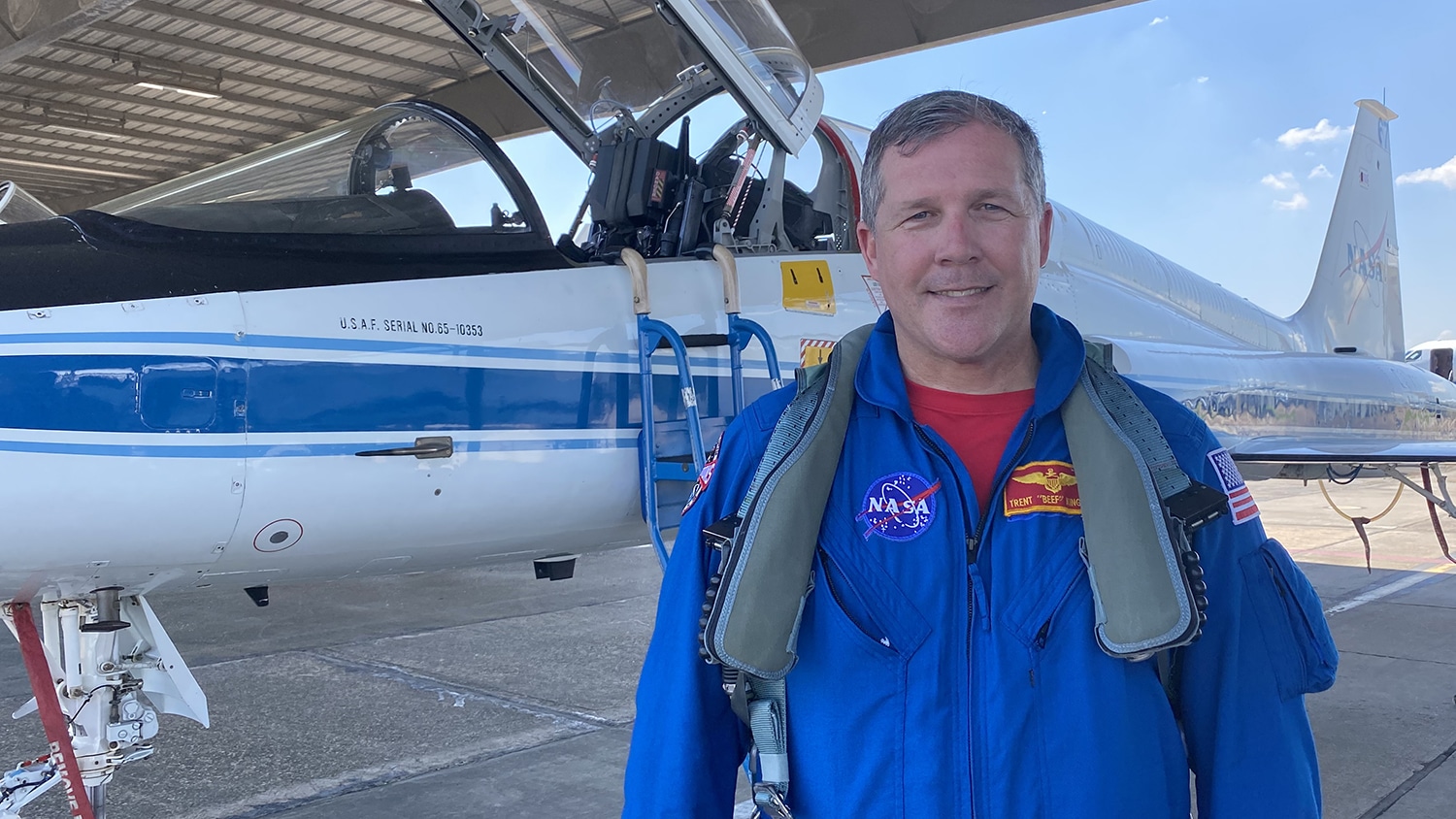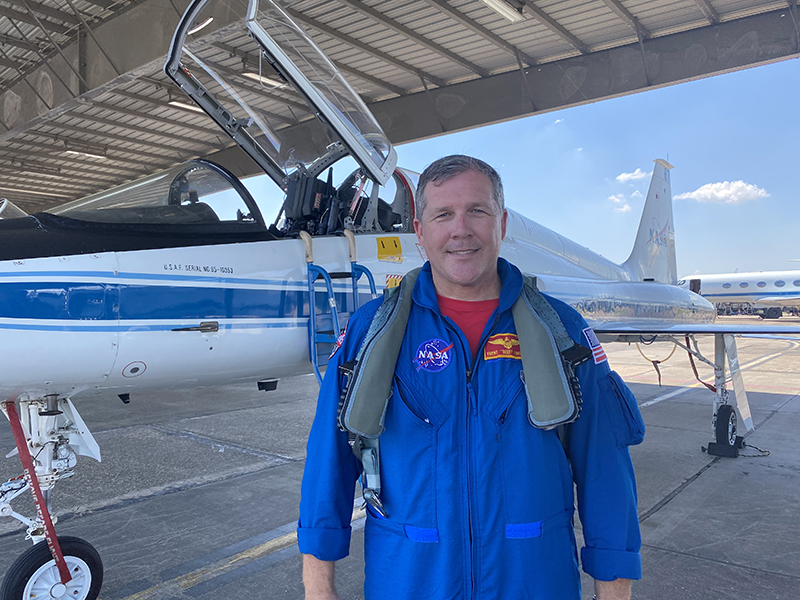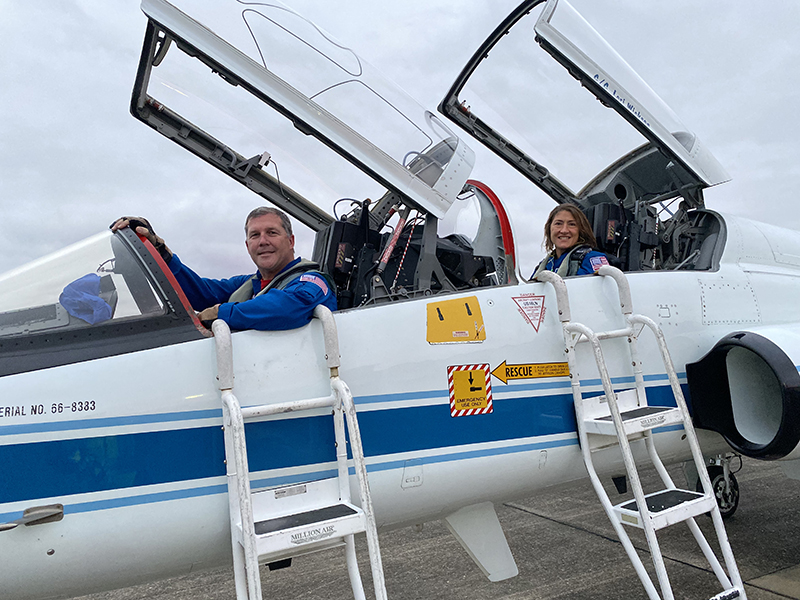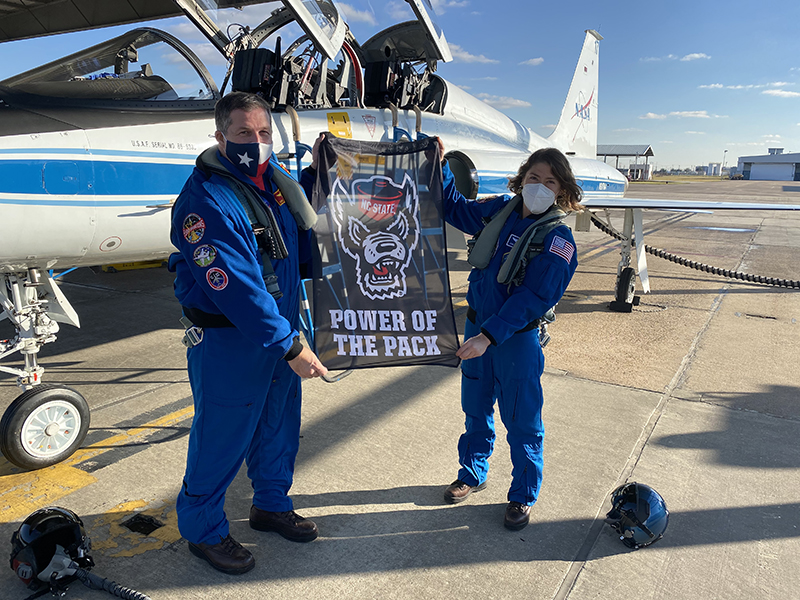Astronaut Scholar and Alumnus Honored for Aviation Career

Growing up in Spartanburg, SC, and then Forest City, NC, Trent Kingery knew two things: that he wanted to serve in the military like his father and grandfathers and that he would love to study in Raleigh.
“I always wanted to go to NC State, even as a kid,” he said. “The Wolfpack is pretty cool.”
When it came selecting the U.S. Marine Corps (USMC) as his career, though, his Marine infantryman father had a requirement: learn a technical skill while you are enlisted. So, when avionics technician stood out on a list of USMC jobs, it helped start Kingery down a path that would make him a decorated Marine Corps and NASA aviator spanning over a 32-year military and civil service career.
His latest honor is being selected as the recipient of the 2022 Neil Armstrong Award of Excellence, established by the family of the legendary astronaut and supported by the Astronaut Scholarship Foundation (ASF). Kingery received an Astronaut Scholarship as an aerospace engineering undergraduate student at NC State in 1998.
The Neil Armstrong Award of Excellence is awarded annually to an Astronaut Scholar alumnus or alumna. This award serves as a prestigious recognition for those who continually push the boundaries in their fields of science, technology, engineering and mathematics (STEM). The honoree exemplifies the personal character and professional achievement mirroring the core values of the award’s namesake.
Kingery called the honor “an award that I will cherish for the rest of my life.”
“It was such a great surprise for me,” said Kingery, who will be honored at the Foundation’s Innovators Week and Gala in late August. “I am so excited to accept it.”

Kingery joined the Marine Corps out of high school and was assigned to Marine Corps Air Station Cherry Point in eastern North Carolina. He was able to enroll in aerospace engineering at NC State through the Marine Corps Enlisted Commissioning Educational Program (MECEP), which allows enlisted personnel to attend college while on active duty.
Kingery, who was married and had two children at the time, juggled a tough course load and an active role in NC State’s Naval ROTC along with leadership positions in two engineering student organizations. He remembers practically living on the fourth floor of Broughton Hall on North Campus, then the department’s home. There were nights in which he would listen to men’s basketball games on the radio while studying in Broughton, hearing the sounds of cheers from nearby Reynolds Coliseum mixing with the play-by-play over the radio.
During his junior year, Kingery was the inaugural recipient of the John Estes Conway Memorial Scholarship. Shoshanna Conway established the scholarship to honor her late husband, who passed away in 1977 at the age of 27. John Conway earned a bachelor’s degree in aeronautical engineering and a master’s degree in mechanical engineering from NC State and more than 50 students from the Department of Mechanical and Aerospace Engineering have benefited from the scholarship endowed in his memory.

The Conway scholarship was a tremendous asset and Kingery began applying for others as a senior. Thomas Brown, who taught Kingery statics as an undergraduate, recommended him for the Astronaut Scholarship. As a senior, Kingery was able to attend the ASF gala and meet four of the original NASA Mercury 7 astronauts, who collectively established the scholarship effort.
ASF annually provides annually more than 60 scholarships to the brightest and most talented college students in STEM. The nonprofit organization’s goal is to aid the United States in retaining its world leadership in technology and innovation by supporting the very best and brightest scholars while commemorating the legacy of America’s pioneering astronauts. NC State has had 38 Astronaut Scholarships awarded to 31 students (seven students received the scholarship their junior & senior years).
AFTER EARNING HIS aerospace engineering bachelor’s degree from NC State, Kingery also completed a bachelor’s in electronic systems technologies from Southern Illinois University at Carbondale and a master’s in systems engineering from the Naval Postgraduate School. He is currently a Ph.D. candidate in systems engineering at Colorado State University.
Kingery served 24 years of active duty service in the Marine Corps as an FA-18 pilot, head flight instructor, acquisition professional and avionics technician. He participated in Operations Iraqi and Enduring Freedom and accumulated nine Strike/Flight Air Medal awards, flew 695.0 combat flight hours, flew 175 combat missions and accumulated 165 carrier-arrested landings during his military career.
Since military retirement, he has served in numerous positions including his current role as the Chief of Aviation Safety for the Flight Operations Directorate at NASA’s Johnson Space Center. He is a supervisory research pilot, serves on the Board of Directors of Flight Operations and has accumulated more than 4,000 flight hours in more than 23 aircraft. Kingery also owns Vertical Views Photography, a professional aerial photography business.

His NASA aviation service has included piloting research flights around the world and bringing U.S. astronauts home from Kazakhstan. Along the way, he’s gotten to know Christina Koch, NASA astronaut, fellow NC State engineering graduate, and the 2000/2001 Astronaut Scholar recipient from NC State. Koch, who earned bachelor’s degrees in electrical engineering and physics and a master’s in electrical engineering from NC State, was deployed to the International Space Station in 2019 and 2020. She participated in history’s first all-woman spacewalk and set a record for the longest continuous time in space by a woman.
Koch was the last winner of the Armstrong Award of Excellence, in 2020, meaning that two of the award’s five recipients are NC State engineering alumni. “She was four and I am five,” Kingery said. “Our percentage of recipients is growing.”
This post was originally published in College of Engineering News.


